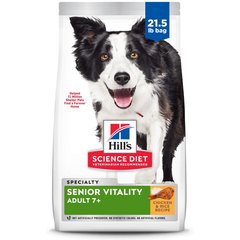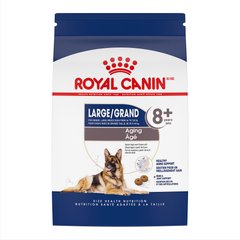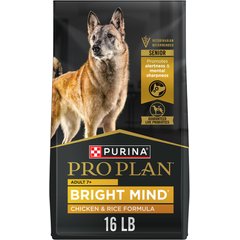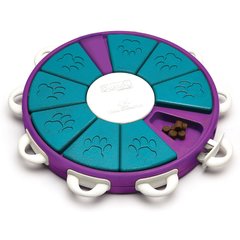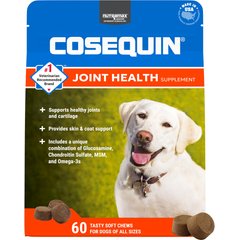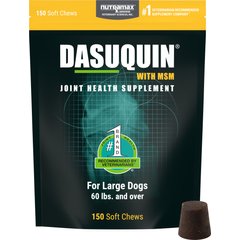How to Care For Your Senior Dog
Senior dogs are wonderful companions, but their care and keeping require careful consideration. Working closely with a veterinarian can help you better understand the needs of an older dog and make informed decisions to ensure they enjoy a high quality of life.
Key Takeaways
- Mixed breed dogs can be considered seniors at approximately 7 years old.
- As dogs age, they are at risk for various health conditions, which is why exams twice a year are ideal.
- If your dog has been diagnosed with a chronic health condition, such as kidney or liver disease, a prescription diet may be recommended.
What Age Is a Dog Considered a Senior?
The age that dogs are classified as seniors varies based on their breed. Small dogs, like Yorkshire Terriers, tend to have a longer lifespan and are considered seniors at around 11 years of age.
Medium- and large-sized breed dogs, such as Labrador Retrievers, reach senior status at the age of 7. In contrast, giant breed dogs, such as Great Danes, have a much shorter lifespan and may be classified as seniors as early as 5 years of age.
Mixed breed dogs can be considered seniors at approximately 7 years of age. Since it is often difficult to determine the exact breed makeup in these dogs, this estimate may fluctuate. Your dog’s veterinarian will be able to discuss an estimated life span and corresponding life stages after completing a full exam.
Recognizing when your dog becomes a senior is important because their needs are different from those of puppies and adult dogs. For example, with senior dogs, veterinary visits for health issues become more frequent, their dietary needs change, and they may require medications or supplements on a regular basis to manage pre-existing conditions.
Your Senior Dog’s Health
Twice-yearly veterinary checkups are essential for senior pets. Because their health status can change rapidly, it is important for a veterinarian to assess your pet every six months.
Some dogs on medications may require more frequent monitoring, such as every three months, to ensure that no side effects are developing from long-term medication use. If this occurs, your veterinarian can adjust the dosage or change the medication early on to resolve any issues.
As dogs age, they are at risk for various health conditions. Common health issues that pet parents should be aware of for dogs in their golden years include:
-
Liver and kidney disease
-
Blindness
-
Hearing loss
To diagnose these conditions, your veterinarian must conduct a full physical exam and bloodwork. Additional diagnostic testing may be recommended, based on these initial results and any symptoms your pet may be experiencing.
Your Senior Dog’s Nutrition
When your dog becomes a senior, it may be necessary to transition them to a new diet specially formulated for the health and well-being of older pets, particularly if they have an underlying health condition. Your veterinarian can provide diet recommendations for the best senior dog food based on your dog’s unique health needs.
If your veterinarian recommends changing foods, there are many different types of senior diets available for dogs. Some of these diets contain two supplements—glucosamine and chondroitin sulfate—to support mobility and joint health. This is especially helpful for dogs who have arthritis to prevent worsening of the condition.
Twice-yearly veterinary checkups are essential for senior pets
If your dog has been diagnosed with a chronic health condition, such as kidney or liver disease, a prescription diet may be recommended. For example, prescription diets to support dogs with chronic kidney disease typically have lower phosphorus, sodium, and protein content.
There are wet and dry versions of these products, and many dry kibbles also come in a variety of sizes for small-, medium-, and large-breed dogs.
Some senior dogs, especially those who are obese, have a lower caloric requirement compared to puppies and adults because their metabolism naturally slows down as they age. However, if a senior dog has a difficult time maintaining weight, they may require more calories.
As you can see, there is not a one-size-fits-all approach to senior pet food! This is where veterinarian guidance is essential in choosing the right diet for your beloved best friend.
A few examples of senior dog foods to consider include the following:
Your Senior Dog’s Well-Being
During your pup’s golden years, it is important to provide them with a routine each day that gives them familiarity and makes them feel secure. This routine should include feeding them and giving them potty breaks at the same time each day, keeping daily activities predictable, and sticking to a consistent bedtime.
It’s essential to feed them a high-quality, AAFCO-approved dog food every day. And make sure you are not feeding them table scraps or too many treats, as this can lead to unwanted weight gain and strain on an older dog’s joints.
Senior dogs also benefit from mental stimulation throughout the day to keep their brain sharp and prevent boredom. Enrichment toys, such as a stuffed Kong®, new stuffed animals, and puzzle toys, can help keep them engaged.
When selecting toys, opt for those that are appropriate for senior dogs. Choose soft toys, which are gentle on their gums or teeth, rather than hard balls or plastic toys. Daily walks and spending time outdoors in the fresh air are also highly beneficial for older dogs.
As dogs age, there is an increased susceptibility to dental disease. Maintain good dental hygiene by brushing your dog’s teeth every day to help prevent plaque buildup on their teeth. Senior dogs also benefit from once-yearly professional dental cleanings by your veterinarian, while those who are predisposed to dental issues may need twice-yearly cleanings.
Providing an orthopedic dog bed for your senior pet is a great idea to promote comfort. Since older pets tend to spend more time lying down, these beds provide additional support for their joints and prevent pressure sores on their elbows and legs.
Supplements for Senior Dogs
Your veterinarian may also prescribe supplements to improve joint health. Supplements containing chondroitin, glucosamine, and MSM reduce joint inflammation and support healthy cartilage.
Joint supplements work best when started before arthritis develops, but they are beneficial even in dogs who have already developed this condition since they slow the progression of disease.
Work Closely With Your Veterinarian
Your veterinarian is the best resource to address any questions or concerns you may have about taking care of your senior pet. It is essential that you work closely with them to determine a care plan that promotes health and happiness as your dog enters their golden years.
Featured Image: Mary Swift/iStock.com via Getty Images Plus


